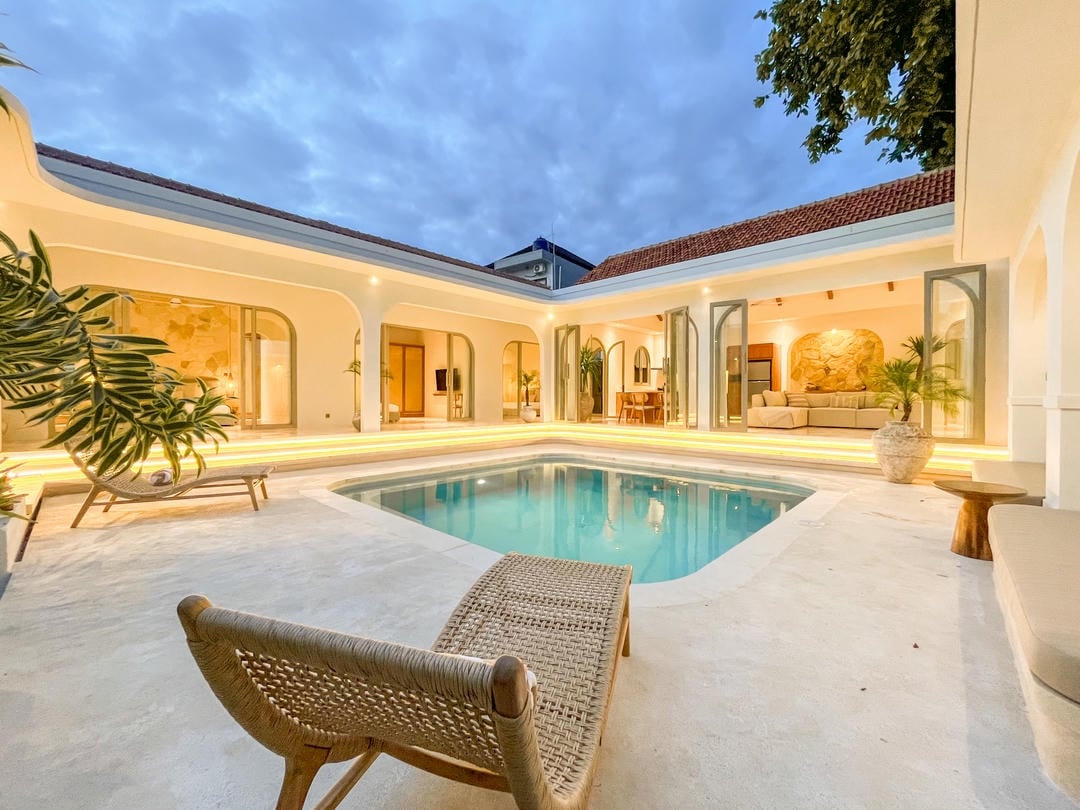If you’re looking to buy a villa or house in Bali for the first time, you’ll likely come across terms you’ve never heard before. It can feel a bit overwhelming—especially when you’re making one of the biggest financial decisions of your life.
The good news? You don’t need to be a real estate expert. That’s what your agent is for. But knowing a few basic terms will help you feel more confident, ask the right questions, and avoid surprises during the process.
Key Terms Every Bali Homebuyer Should Know
Once you understand these common terms, you’ll be better equipped to handle contracts, negotiations, and the legal side of buying property in Bali.
“Having a basic understanding of real estate concepts before you start the homebuying process will give you peace of mind—and could save you a lot of money down the road.” – Redfin
Here are some important terms to get familiar with:
- Leasehold: The most common form of ownership for foreigners in Bali. It means you’re leasing the property (typically for 25–30 years, extendable). You don’t own the land, but you have full usage rights during the lease period. Great for investment or long-term living, but be sure to review the extension clauses.
- Freehold (Hak Milik): Only available to Indonesian citizens. It means you own both the land and the property outright, forever. As a foreigner, you cannot legally own freehold, but there are legal structures (like PT PMA or Indonesian nominees) that allow indirect control—though these come with risks and should always be handled with legal advice.
- PT PMA (Foreign-Owned Company): This is the safest legal structure for a foreigner to buy land and operate a business in Indonesia. A properly established PT PMA can own land under a “Right to Build” (Hak Guna Bangunan or HGB) title. It’s a good option if you’re planning to invest or build a business like a villa rental or co-working space.
- Zoning (ITR – Izin Tata Ruang): Zoning laws in Bali are strict and evolving. They determine what you can and can’t do on a piece of land—such as whether you can build a residential villa, hotel, or commercial space. Always check the zoning (e.g., residential, tourism, green zone) before buying. Some scenic plots may be non-buildable even if the price looks attractive.
- Nominee Agreement: A risky and unofficial method where an Indonesian citizen holds the freehold land title on behalf of a foreign buyer. A private legal contract (nominee agreement) is made to outline the foreign party’s control over the land. While widely used, this structure is not legally protected under Indonesian law and is not recommended without extensive legal counsel. It carries high risk in disputes or ownership transfers.
- Appraisal (Property Valuation): A professional estimate of a property’s market value. It’s often used for securing financing or negotiating a fair price, especially in leasehold deals.
- Contingencies: These are conditions that must be met before a sale goes through. For example, an inspection clause might say you can walk away if the villa has major structural issues. Contingencies protect you—but skipping them just to “win” a deal can be risky.
- Closing Costs: These are extra costs you’ll pay on top of the property price. They may include notary fees, taxes, legal checks, translation documents (for foreigners), and due diligence services. Always ask for a breakdown so you know what to expect.
- Down Payment: In Bali, the down payment can vary widely—especially for foreigners buying leasehold property. Typically, it ranges from 10% to 50% depending on the agreement and the developer. Some sellers may accept installment options too.
- Escalation Clause: If you’re competing for a hot property in Canggu or Uluwatu, this clause lets you automatically increase your offer if someone else bids higher. It can make your offer more attractive without overpaying from the start.
- Mortgage Rate: If you’re a local buyer or using an Indonesian bank loan, this is the interest rate on your mortgage. Foreign buyers typically buy in cash, but some opt for financing through offshore solutions or developer installment plans.
- Pre-Approval Letter: A letter from a bank or lender stating how much they’re willing to lend you. In Bali, this mainly applies to Indonesian citizens. If you’re a foreign buyer, having proof of funds can serve a similar purpose when making offers.
Bottom-Line
Buying property in Bali is possible—and can be very rewarding—but it’s different from buying in your home country. Knowing these terms helps you ask smarter questions, reduce risk, and make informed decisions.
Have more questions? Talk to a Bali-based agent or legal advisor who understands foreign ownership structures and local laws.


